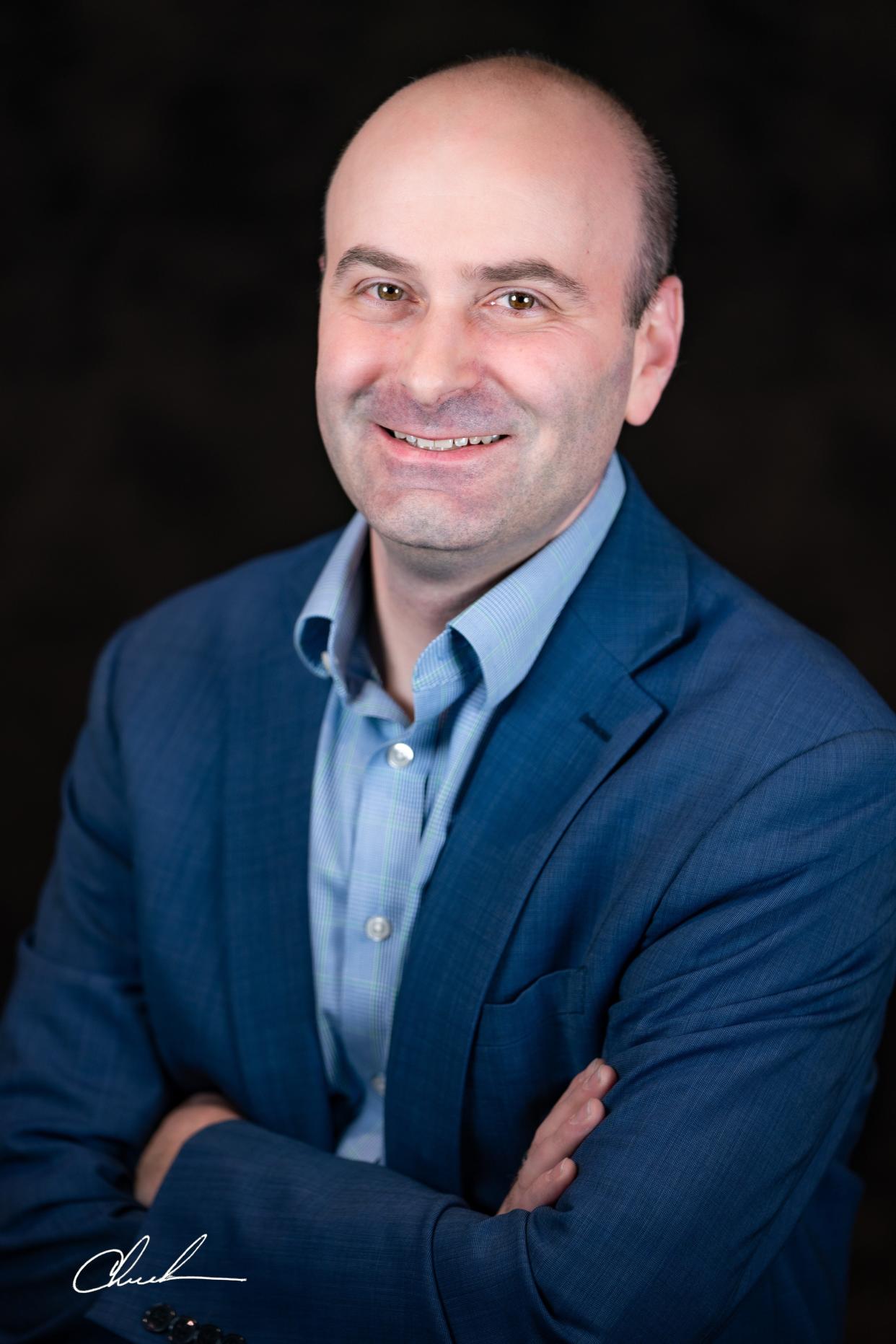For Wayland rabbi, Hamas attacks have forced me to change the focus of my work
Swastikas painted in MetroWest are more than an attack on our Jewish community. This act of hate is an attack on our region’s values — and our Jewish voices must not rise alone in opposition.
When I made the decision to study to become a rabbi, it was because of a love of Judaism. It was because I wanted to delve deeper into the study of Jewish texts, and it was because I wanted to build community.
When I made that life-affirming decision over two decades ago to embark on this journey, I did not think about the role of rabbi as being the person who would need to respond to antisemitic incidents around the corner from the synagogue. I did not think about the rabbi’s need to comfort and reassure a community facing rising levels of antisemitism. I most certainly did not think about the number of security meetings and briefings I would need to attend.

Earlier: For Wayland rabbi, the silence following Oct. 7 breaks his heart
Since Oct. 7, my role as a rabbi — and the focus of my work — has had to change drastically as a result of events in Israel and Gaza, and the impact that this is having on the Jewish community here in the United States. The terrorist attack by Hamas and the response by the Israeli army has unleashed a torrent of antisemitism in this country. According to the Anti-Defamation League, antisemitic incidents are up more than 300% over the same period last year, with an average of 28 incidents reported on a daily basis.
Against this backdrop, Tuesday’s acts of hate no longer came as a surprise. That morning, I began receiving emails about two swastikas painted prominently on Rice Road in Wayland, the road that I and many other Temple Shir Tikva members use to get to the synagogue.
My heart sank.
It’s not the first swastika painted to intimidate and attack the Jewish community, and I am sure that it will not be the last. But this swastika was painted in my community, along my daily commute, around the corner from my home and synagogue. This swastika felt different.
After recent antisemitic incidents in many of the school districts that we serve, we have responded. Each episode disappointing. Each one leaving a scar on the Jewish community in that town. Each one increasing concern amongst our community.
On Tuesday, I felt compelled to go to Rice Road to see the swastikas for myself and to thank the Wayland police officers and DPW crews who had responded so quickly to this hate crime. Together with Cantor Hollis Schachner, we saw that while the swastika in that area was already covered up, its hateful orange arms were still temporarily sticking out around the edges — the scar was visible.
Today, as I drive along Rice Road, I am aware of what is under the paint, what it represents, and that there is a person (or people) in our town who sought to spread this antisemitic symbol and all it represents.
My grandmother escaped Berlin after Kristallnacht, the horrific nationwide pogrom on Nov. 9-10, 1938, dubbed the "Night of Broken Glass"; she experienced the anti-Jewish laws firsthand and the way that antisemitism and hate can spread from a symbol. As a teenager, she lived through the rise of Nazism and counted herself as one of the lucky ones who managed to get out and start all over again in England. The swastika is not an abstract symbol for my family, nor for countless others; it is the most hateful symbol of antisemitism. While it must be covered up and removed, painting over it is not enough.
A swastika is not just an attack on the Jewish community, it is an attack on all of us. The values that I assume and hope that we all hold dear — inclusivity, equality, acceptance, etc. — are all challenged by this symbol. It attacks the very foundations of a free, open, and welcome society. It is anathema to what is best about our towns and communities. And while it is understandable that the Jewish community is at the forefront of the response, everyone needs to respond. Everyone needs to say loudly, clearly, and unequivocally that there is no place for swastikas or the hate they represent in our towns and communities.
An attack on the LGBTQ community is an attack on all of us; an attack on the Black community is an attack on all of us; an attack on the Muslim community is an attack on all of us; and an attack on the Jewish community is an attack on all of us.
Against the backdrop of rising levels of antisemitism across this country, there have not been enough voices from outside the Jewish community speaking up and speaking out. The Jewish community has largely felt alone, isolated and abandoned as we face this new wave of hate — that situation cannot continue.
I am still digesting the fact that a swastika could be drawn in our town. I am grateful for the rapid way in which the Wayland Police Department and Department of Public Works responded. But I am thinking about what we do now. I know that for myself and many members of the Jewish community it is not a case of “out of sight, out of mind” — it stays in the front of our minds and hearts. Its presence lingers, even though the paint has been covered up. We will, of course, respond as a Jewish community; but equally, if not more importantly, we need a wider, communal response from everyone who stands against racism, hate, prejudice and antisemitism.
Rabbi Danny Burkeman is senior rabbi at Temple Shir Tikva in Wayland.
This article originally appeared on MetroWest Daily News: Wayland rabbi says Gaza attacks unleashed torrent of antisemitism
